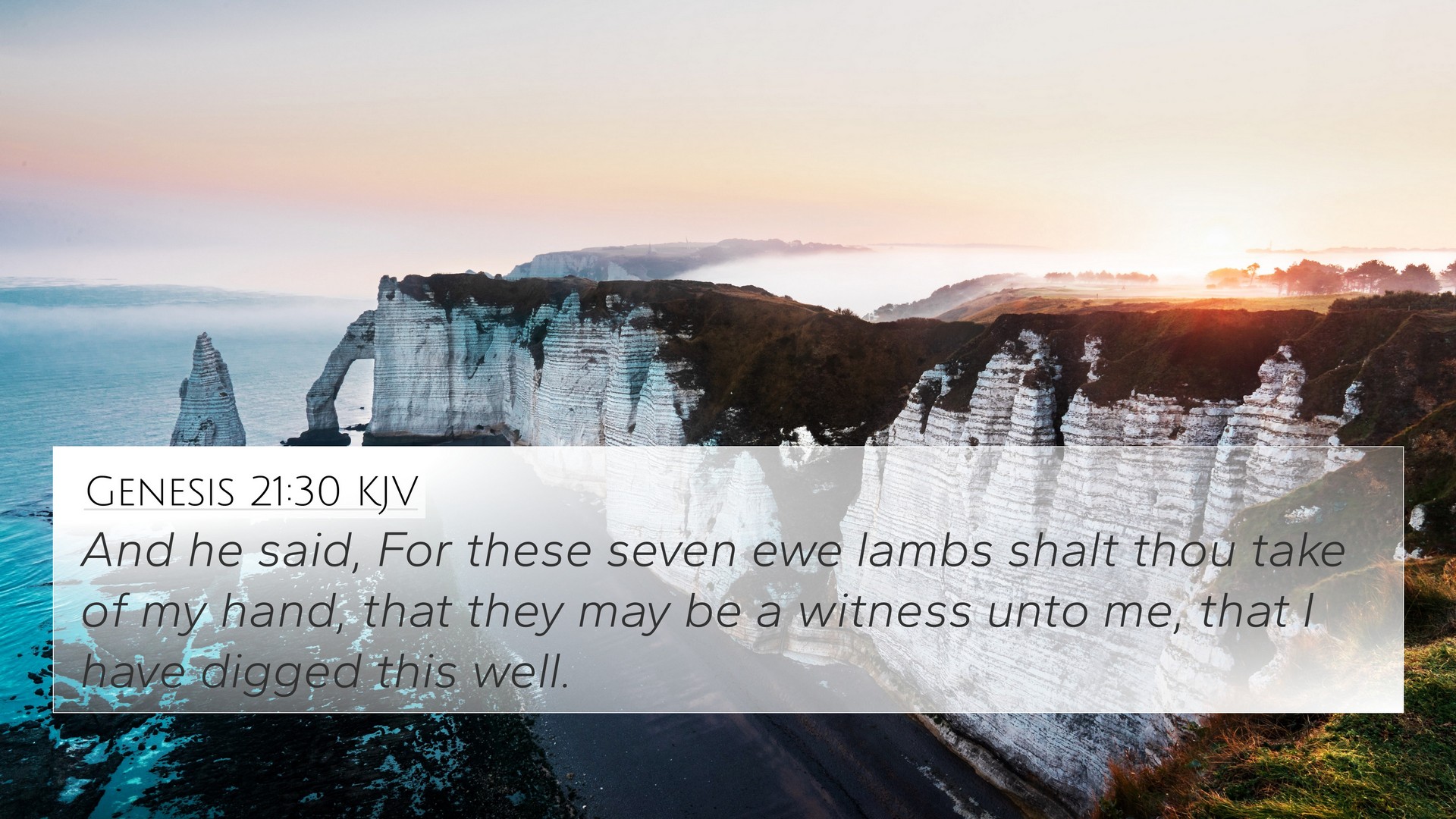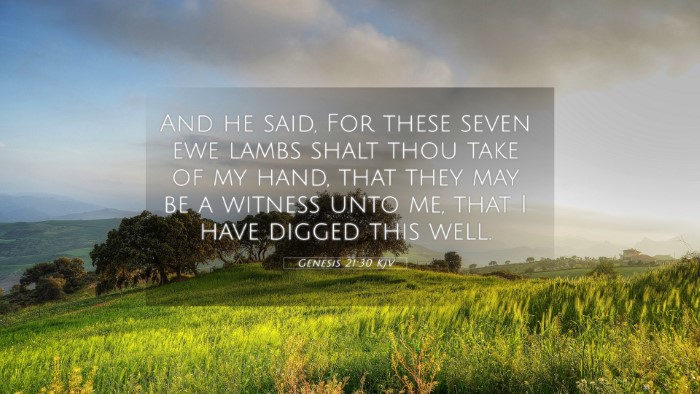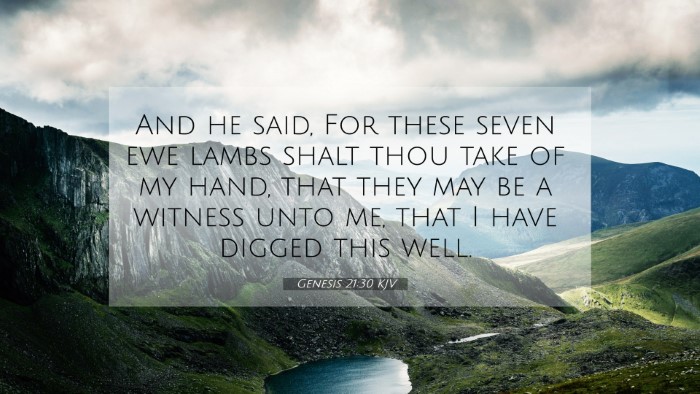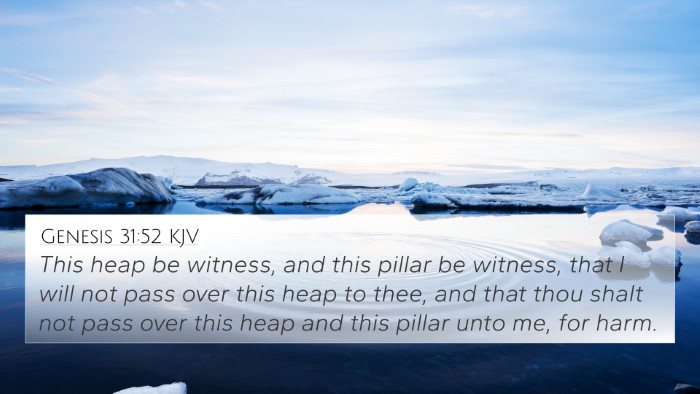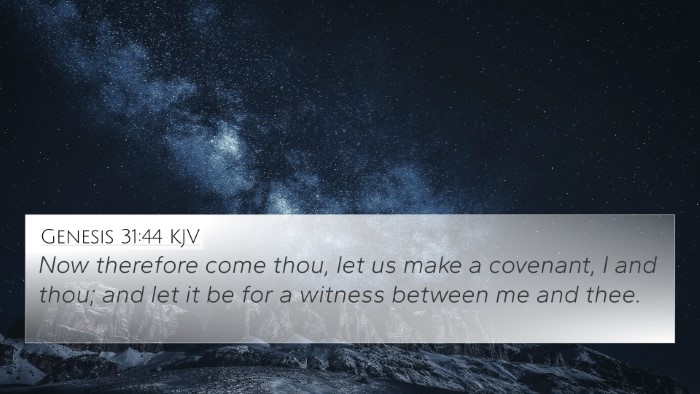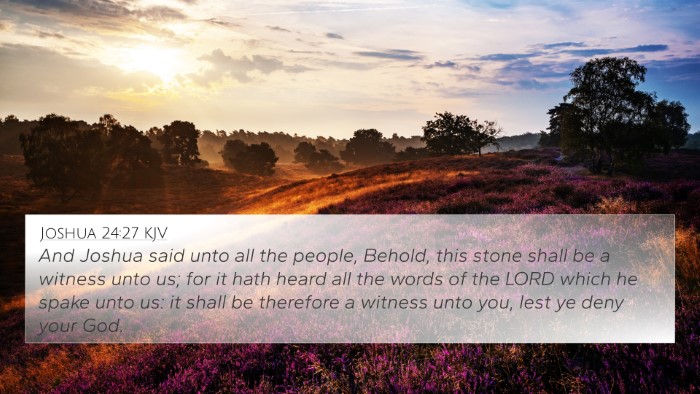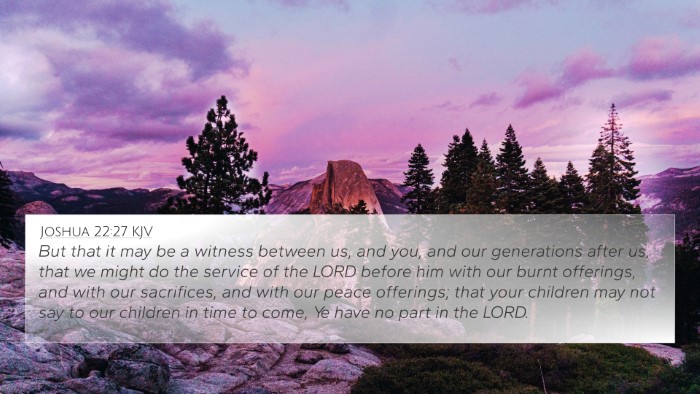Understanding Genesis 21:30
Verse: Genesis 21:30 - "And he said, 'You shall take these seven ewe lambs from my hand, that they may be my witness that I have dug this well.'"
Overview
This verse depicts a crucial moment in the narrative of Abraham and Abimelech, emphasizing the importance of oaths and covenants in biblical interactions. The act of giving seven ewe lambs symbolizes a formal acknowledgment of the well that Abraham had dug, serving as a witness to his rightful claim. This encounter not only highlights issues of property rights but also reflects deeper spiritual truths about fidelity and the significance of promises in relationships.
Commentary Insights
-
Matthew Henry:
Henry emphasizes the necessity of clear agreements to prevent disputes, arguing that Abraham's offering of the ewe lambs was a gesture of goodwill and a method of ensuring lasting peace. It serves as a reminder of the commitment believers are called to maintain in their promises.
-
Albert Barnes:
Barnes notes that the act of taking the lambs as a witness illustrates the tradition of using animals in covenant-making, underscoring the gravity and solemnity of such agreements. He highlights that the seven lambs specifically denote completeness and serve to seal the covenant between Abraham and Abimelech.
-
Adam Clarke:
Clarke points out that the number seven frequently symbolizes divine perfection or completion in scripture, suggesting that this was not merely a casual offering but a significant act reflecting Abraham's faith and the covenant with God. Clarke also stresses the importance of witness in biblical covenants.
Thematic Connections
This verse evokes themes of
- covenant-making: Reflecting the significance of commitments affirmed before God.
- dispute resolution: Illustrating how conflicts can be resolved amicably through shared agreements.
- true witness: Emphasizing the importance of having confirmations in matters of ownership and rights.
Bible Cross-References
To further understand Genesis 21:30, the following cross-references provide deeper insight:
- Genesis 26:20-22: A similar dispute over water rights between Isaac and the Philistines.
- Genesis 14:13: The theme of alliances and confederations through oaths and promises.
- Genesis 31:44-54: The covenant made between Jacob and Laban involving a pillar of stones as a witness.
- Exodus 20:16: The commandment against false witness highlights the importance of integrity in testimonies.
- Leviticus 6:5: The requirement for restitution emphasizes the importance of acknowledging wrongs and repairing relationships.
- Psalms 15:4: A righteous person is described as one who keeps his word even when it leads to personal loss.
- Matthew 5:37: Jesus' teaching on oaths encourages honesty and integrity in all dealings, further illuminating the principles underlying this verse.
Applications for Today
This verse and its commentary insights encourage believers to:
- Maintain strong values of honesty and integrity in their relationships.
- Be proactive in resolving disputes through mutual understanding and agreements.
- Practice faithfulness and commitment in both personal and communal engagements.
Conclusion
Genesis 21:30 serves as a reminder of the importance of covenantal relationships, emphasizing the necessity of faithfulness, integrity, and the impact of our commitments. Through cross-referencing this passage with other scriptural texts, believers can gain a deeper understanding of its themes and the significance of maintaining one’s word.
